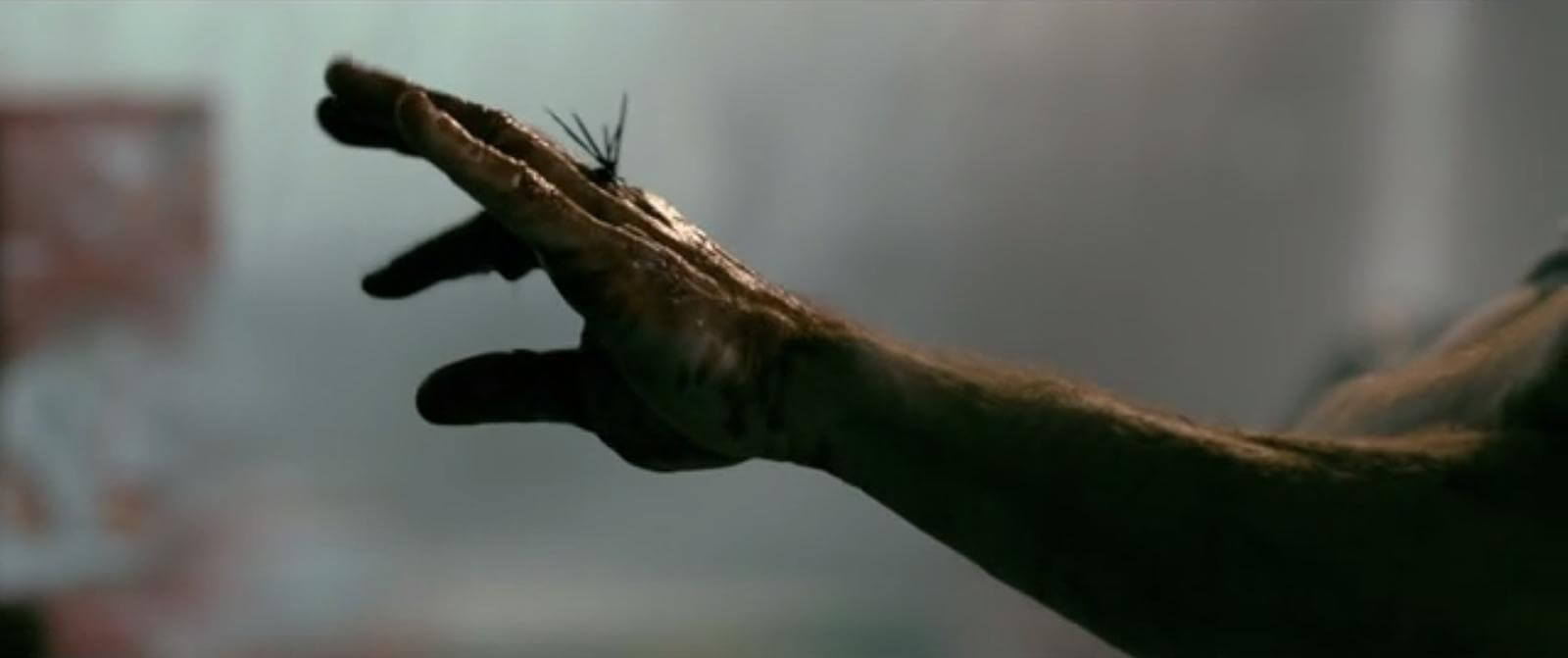SPLINTER. Science Fiction Horror That Will Make You Think

Cold, rainy evening in mid-January. Yes, rainy and yes, January – it’s not a mistake, let’s not hide it, the weather this year is playing jokes with the calendar. The hurricane-like wind cheerfully roars outside the window, and here I am sitting in the room, trying to come up with some activity. The first noteworthy idea that comes to mind – “send the guy to the rental for some movie” – I execute at a speed at least equal to the mentioned hurricane. Upon reaching the destination, it turns out (as usual) that the shelf with new DVD releases has been thoroughly plundered. It happens. Oh well, I think, a good opportunity to catch up on some films from a few years ago. Then my eyes fall on a modest box labeled Splinter. The title seems familiar, which is enough to catch my attention. After reading the description, a manly decision follows – I take it. With a pack of chips in one hand and the movie in the other, I reach home. A moment of preparation, we turn off the lights, and we can begin. Thus begins my adventure with the debut work of the young Briton, Toby Wilkins.
From a narrative standpoint, the film does not exceed the boundaries set by the genre. The story being told here is simple, though it’s hard to accuse it of lack of coherence. We have four characters, two criminals fleeing a manhunt and a young couple wanting to celebrate their wedding anniversary with a picnic in the great outdoors. A confrontation quickly ensues, as a result of which the couple becomes hostages, tasked with enabling the criminals to cross the border. As one can easily guess, not everything will go according to plan, and the four characters will end up at a not entirely deserted gas station, forced to face an aggressive parasite. The simple division into perpetrators and victims loses its meaning, and the participants of the nightmare will have to learn to cooperate to survive, discovering the truth about themselves. In short, that’s the plot. It’s worth noting here that those expecting a detailed explanation of the origin of the main antagonist or the reasons for the events in the film will be disappointed. All this information is provided only in fragmentary form, and the viewer is thrown into the midst of the nightmare, along with the characters, trying to make sense of the inexplicable situation. Personally, I don’t consider such a move a mistake; on the contrary, it greatly benefited the film, building an atmosphere of tension and horror.

Wilkins’ film can also be praised for its execution, especially considering the modest budget. Dynamic editing, tension-building music, and well-executed special effects, including some realistic gore scenes, should satisfy not only horror enthusiasts. A moment should be devoted to the acting. Famous faces are in vain here, which, although not always an advantage, undoubtedly works in favor of the film, giving authenticity to the events on the screen. The actors play convincingly, and their characters are likable. Special praise goes to Shea Whigham, who portrays an ambiguous criminal. I will come back to this character in a moment.
In promotional interviews, the director did not hide that his work was inspired by genre classics such as Alien or The Thing. And although horror fans may indeed accuse the film of some redundancy, Wilkins managed to give the story deeper meaning, making Splinter not just a skillful imitation of the aforementioned works.
On the one hand, we witness here the struggle of the characters with an exceptionally aggressive parasite, and on the other, we experience the catharsis of one of them. Early in the film, Shea Whigham’s character, the wanted criminal Dennis, is infected by this parasite. The thorn growing in his body and the struggle with it symbolize the battle with one’s own evil and a sense of guilt for the harm caused. The liberation from the disease becomes symbolic, and finally, the attempt to obtain ultimate absolution. Admirably, the director didn’t need a two-hour morality play about a man tormented by guilt. Three fantastic “confession scenes” were enough, incredibly building the characters’ relationships with the audience.

When I reached for Splinter, I expected only a decent representative of the horror science fiction genre, capable of keeping me in suspense during the screening. However, I got something much more – a story that, under the guise of a typical thriller, poses the question to the viewer: does one mistake mean that a person does not deserve a chance to repair their life? And would we ourselves, given such a chance, be able to make use of it?

